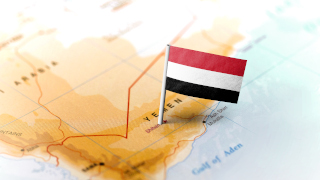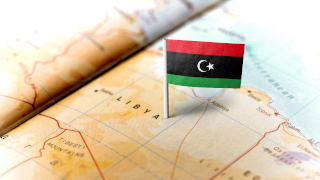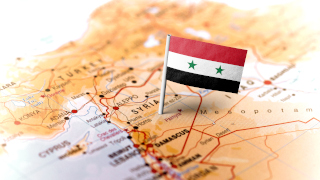Peacebuilding and Statebuilding in MENA
Program Summary
Mission
The mission of the Center for Peace and Conflict Studies' Peacebuilding and Statebuilding in MENA program is to help national and international actors promote peaceful societies and stronger/more accountable states across the Middle East and North Africa 2011, by supporting more effective mediation, international assistance and peacebuilding methodologies.
Mediation:
Since 2011, UN-led political mediation processes have struggled to accommodate multiple conflicting parties and the interests of external states across the region. At the same time, alternatives ways of managing conflict have been tested, through more participatory approaches to mediation, parallel NGO activity, 'National Dialogues' that look to develop a shared vision on the future of societies and local mediation processes, focused on managing the immediate humanitarian and security impacts of violence. CCPS could provide added value to mediation processes in MENA by undertaking rigorous research on the effectiveness of these initiatives, and by providing mentoring and guidance to those working in the field.
International aid:
The processes for, and legitimacy of, international assistance has also been challenged as it has been more evidently politicised in support of conflict parties, or has failed to address the underlying drivers of conflict. Importantly, the MENA region has become the test ground for three changes in how international aid is planned and delivered. Firstly, it is the focus of efforts to implement 'the nexus' between humanitarian, development and peacebuilding aid (as is most evidently the case in Yemen). This endeavour represents a critical shift in how humanitarianism and development are envisaged, and their relationship to peace promotion. Secondly, it is the area of greatest spending on 'stabilisation' programming, which looks to reinforce the authority of 'legitimate' authorities in conflict contexts and to fill the gap between humanitarian and development aid. However, stabilisation can represent the overt politicisation of aid and could prove detrimental to peace efforts. Thirdly, the MENA region is one of the focuses of international attempts to mainstream conflict sensitivity. CCPS could provide added value to the development of aid practice, by helping to identify practical measures for delivering the nexus and by exploring the impact of stabilisation on peace promotion.
Peacebuilding:
The very foundation of 'peace practice' has been challenged as not well suited to the nature of conflicts in the region, as it is argued that they stem from a clash in 'world views'. In particular, methodologies (such as 'do no harm') that look to help distribute resources in a manner that is perceived to be fair, or that look to identify and negotiate underlying interests, are not having the desired impact; when group aspirations of a 'fair' society are so divided (e.g. between extremist Islam and security ideas). In addition, there appears to be a growing fault lines between peacebuilders that take an issue-based approach, and those that work towards social transformations; with the potential risk that we are simply advocating for our vision of a 'good' society. CCPS could provide added value to the development of peacebuilding methodologies by helping to clearly articulate the challenges facing the community and contemporary learning from the MENA region.
Program Activities
The program comprises:
- a set of geographic-focused projects that contribute to the overall goal of the programme;
(1) Geographic projects
The program has three projects in the region.


- Yemen – international aid: Yemen is the primary focus of CCPS' MENA projects. Work in Yemen focuses on shifting the nature of international aid so that it is better positioned to drive peace, both through the nexus and stabilisation methodologies. The School of Diplomacy has already made progress in establishing a project in Yemen through an initial piece of research into the conflict sensitivity of aid into the country and through a two-year project to establish a Yemen Conflict Sensitivity Platform.
- Partners: Search for Common Ground.
- Funding: Dfid.


- Libya – mediation: Libya is the secondary focus of CCPS's MENA projects. The Libya project looks to support: (a) the political mediation process by researching the positions and roles of actors (especially governance actors) across the country; and (3) the prevention of armed violence in the South of the country. The School of Diplomacy has already made progress in establishing a project in Libya through an initial piece of research into peace and conflict dynamics across the country.
- Partners: Potential partners for this work would be the main Tripoli and Benghazi Universities, select national NGOs with growing experience on conflict issues, Chatham House and the European Council for Foreign Relations (ECFR).
- Funding: German BMZ/GIZ; future targets Dfid, US State Department, EU and Switzerland.


- Syria - peacebuilding: CCPS' would look to establish only a limited project in Syria, partly due to the challenges of working effectively and safely there. The focus of CCPS' Syria project would be on peacebuilding across the main conflict divide (regime/opposition) as well as between competing groups in opposition held areas. The project would also look at how local governance capacity could be developed to aid peacebuilding in liberated areas such as Raqqa.
- Partners: CCSD
- Funding: Being sought at present.

